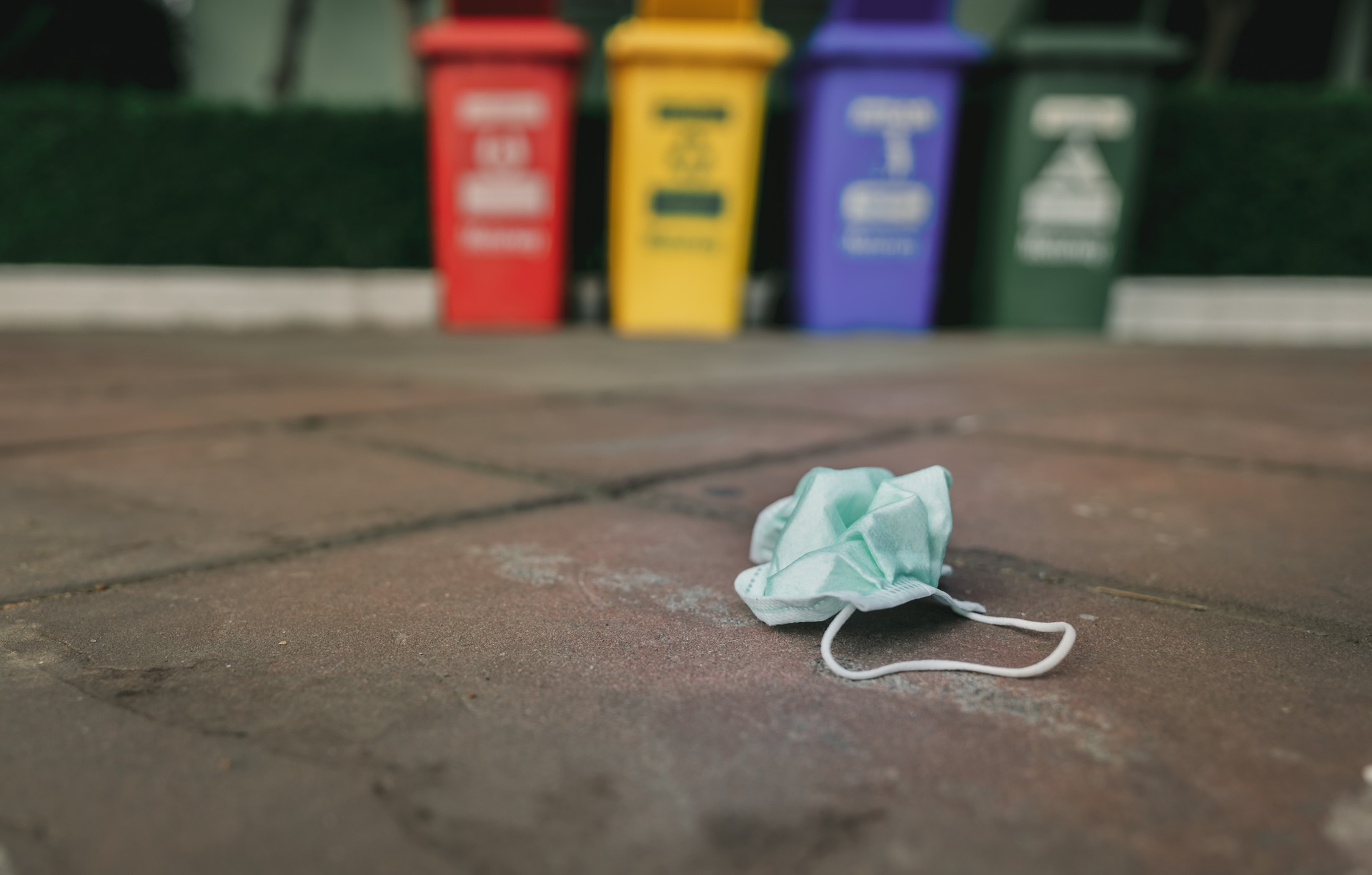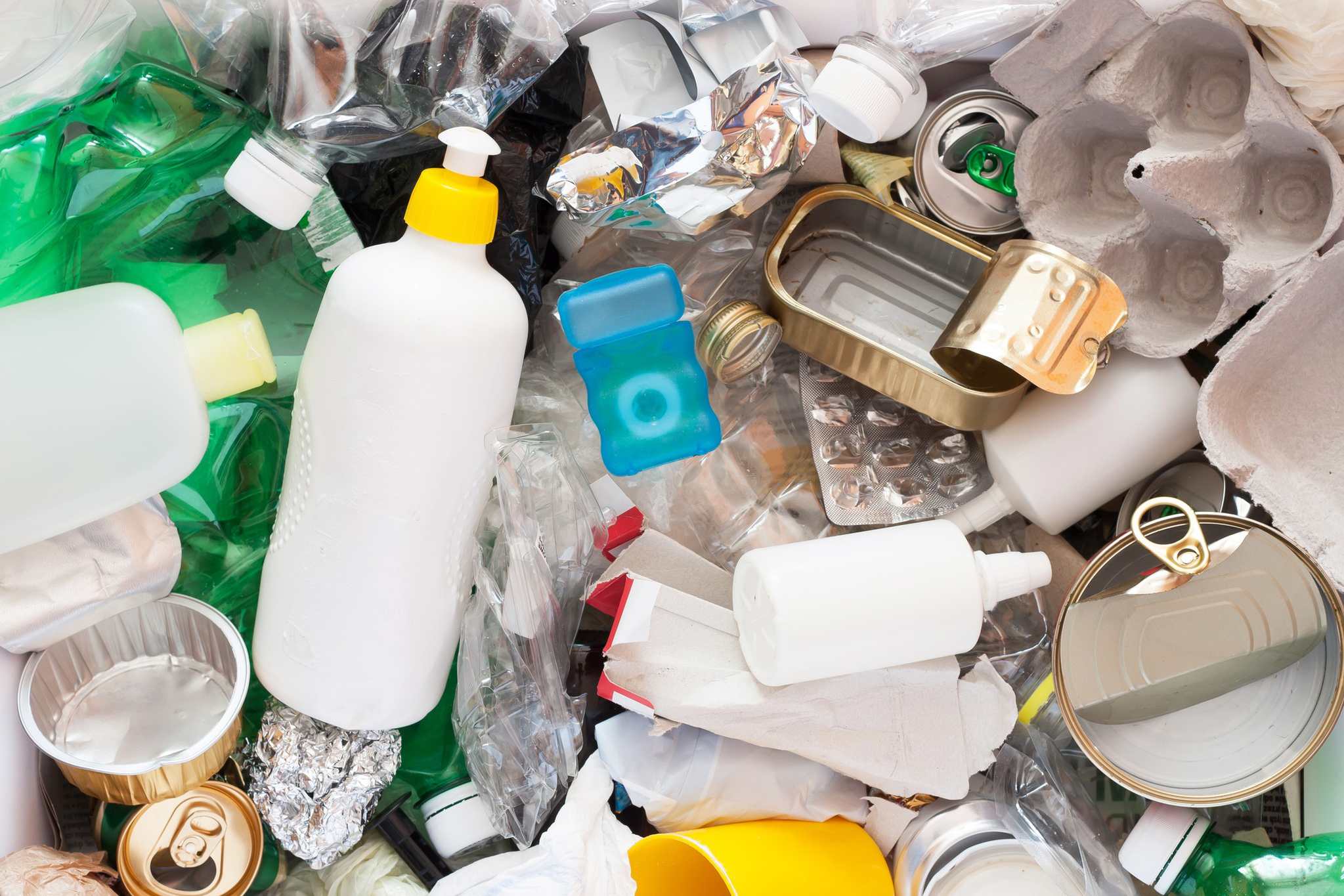In the wake of the Corona pandemic, the amount of plastic waste from households is exploding. At the same time, the demand for even high-quality recyclate is declining. The recycling industry is facing major challenges. Experts are calling on businesses and the government to take action so that even in times of crisis the idea of recycling is not neglected and the circular economy becomes a reality despite Corona.

Be it home office, mandatory masks, or the obligation to use disposable cups – the Corona pandemic turns life upside down. The consequences are also evident in our trash bins. The German Society for Waste Management anticipates that in 2020 the amount of household waste will increase by 2.26 million tons. A large part of this consists of plastic. In recent months alone, the amount of plastic waste in the yellow bins has increased by ten percent, reports the recycling company Grüner Punkt.
Why is that? Millions of people are working from home, buying food in small packages, and ordering goods online, which are again packaged in plastic. In addition, snack stands and restaurants are handing out disposable tableware more frequently to their customers for hygiene reasons. Staff in hospitals and nursing homes require additional protective clothing compared to before – much of which is made of plastic. After use, gowns, gloves, and masks end up in the trash.
This is not only a challenge for the environment, but also for the recycling industry. Because while the heaps of waste are growing, the number of buyers for recyclate is shrinking. Even high-quality material cannot find a market. The reason for this is the oil price, which has plummeted due to the economic slowdown caused by Corona. Crude oil is the most important ingredient in the production of plastic. The fallen price makes new plastic cheaper. The consequence: More and more companies are foregoing recyclate and instead using new plastic.
Recycling industry faces setback
For the recycling industry, this means lower sales and shrinking profitability. It threatens a setback for the entire plastic circular economy – contrary to the wishes of many consumers. Surveys by the market research firm GfK show that even during the Corona period, consumers consider plastic waste to be the biggest problem for their environment. They expect solutions in favor of a sustainable economy.
There are already solutions. Technically, an efficient material cycle is possible. Used plastic from collections such as the Yellow Sack can be processed to such a high quality that even the strict requirements for the use of recyclate in cosmetic packaging are met.
The consequences of the pandemic could negate the previous efforts toward a plastic circular economy. As the amount of household waste increases, the urgency to rethink waste management rises. The need for action is obvious. Even before Corona, plastic packaging waste in Germany was predominantly incinerated. As far as the recycling rate is concerned, there is room for improvement. Only just under 16 percent of the plastic waste generated by end consumers is converted into recyclate and can be reused.
Bernhard Bauske, an expert from the environmental organization WWF, calls for not shifting the burden solely onto the consumer. Business and lawmakers are needed. “Especially now in the crisis we need massive structural changes to usher in a future with more resource conservation and a circular economy.” Stricter requirements are necessary to enable more packaging to be recycled. In addition, the federal government must advance reusable systems in gastronomy and online retail. Germany is one of the top waste producers in Europe. In 2017, there were 226.5 kilograms of packaging waste per capita here. The EU average is 173 kilograms.
Circular economy on the verge of collapse?
The Green Dot, as one of the leading providers of take-back systems, sees great problems for the recycling industry in light of the slow progress and warns of a collapse. "The extremely low oil price and the consequences of the Corona pandemic massively endanger all successes and efforts to recycle plastic and keep it in circulation," says Michael Wiener, Managing Director of the Green Dot.
He speaks of market failure – to the detriment of the environment. Because recycled plastic saves up to 50 percent of the greenhouse gas emissions produced by new plastic. Politics must finally enable the breakthrough of the circular economy for plastic, demands Wiener. The companies endangered by Corona should be supported. He recommends eliminating the competitive advantages of new products over plastic recyclates.
The existing problems persist despite Corona.
The danger is that politics and the public focus solely on Corona and lose sight of the chosen path of the circular economy, even though it is of outstanding importance for the future of our society. For it ensures environmental protection and sustainability.
"Industrial companies must rethink. They should continue to operate profit-oriented, but also with foresight," says Michael Perl, Group Director Sorting Recycling at Sesotec. Although Corona has brought new serious risks and challenges, the existing problems have not disappeared. "In the long run, climate change and the circular economy remain outstanding concerns of humanity and must be actively tackled," adds Perl.

